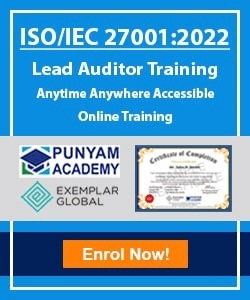To meet the industry’s strict criteria, automotive suppliers must implement and maintain an IATF 16949 Quality Management System (QMS). To attain and maintain adherence to the IATF 16949 standard, one needs proficiency, commitment, and a methodical approach. Hiring an IATF 16949 expert can help expedite the implementation process and guarantee that your company is prepared for certification. However, selecting the best consultant is a crucial choice that has to be carefully thought out.
Eight Guidelines for Selecting an IATF 16949 Consultant
You could have a lot of questions about how to proceed correctly and get the desired outcomes when implementing or improving a quality management system based on the IATF 16949 standard. It will be necessary to ask for assistance at that point, and hiring an IATF 16949 consultant is advised. How can you determine which consultant is the most suitable? Eight guidelines for selecting an IATF 16949 consultant are provided below.
Think You Need an IATF 16949 Consultant: There are several ways that consultants might benefit the company:
- Managing the implementation in part or in full by creating the necessary management system documents, such as manuals, procedures, and instructions
- By offering more practical assistance to carry out plans or specific tasks, like internal audits,
- By identifying gaps between your Quality Management System’s performance and that required by automotive industry regulations, and
- By conducting training sessions on IATF 16949 and key tools.
Assess their Level of Experience with both your Company and the Automotive Sector: Selecting the right consultant is largely dependent on their experience in the automotive industry (at least five years), as well as their knowledge of your particular industry. It is not the same to have worked in the tyre, glass, painting, or machining industries. Owing to modifications made to the ISO 9001:2015 standard—which serves as the foundation for IATF 16949:2016—the consultant additionally has to be aware of:
- Strategic Direction
- Instruments for identifying both internal and external problems
- Techniques for figuring out stakeholder requirements
- Risk-based thinking
Learn the Methodology Used by the Consultant: To enhance or execute the Quality Management System, the consultant can employ many approaches and strategies. Employee support and cooperation from the organization are necessary to get successful outcomes in the consulting. To ensure that everyone works well together, it is crucial to understand which approach will be used. To guarantee a successful implementation, the consultant will need your time, effort, and resources; be sure you are aware of and able to meet these demands.
Take the Cost-Benefit Ratio into Account: It’s crucial to have a contract that outlines the amount of time and money that will be spent on the project, as IATF 16949 consultants are highly skilled professionals whose costs can’t be taken lightly. Never overlook the necessity of having internal staff members supporting the consultant and actively engaging in implementation within the organization. Ultimately, the organization will be responsible for maintaining the Quality Management System—not the consultant.
Examine Their References: The automotive industry is highly competitive. It is imperative that the IATF 16949 consultants you are considering provide references, and they should have some experience working for an assembly line or in the automotive industry. Which tasks have they completed? What are these consultancies’ outcomes? How is this reference checked for accuracy? Request three client references from the consultants and find out if the clients were happy with the kind of job the consultants completed.
Receive Comments: There’s a good chance the IATF 16949 consultant will work extensively within your company to become familiar with its procedures and operational style. To discuss the status of the projects and the opportunities and dangers that the consultant has identified, it is therefore advisable to schedule regular meetings with the IATF 16949 consultant. The outcomes of the consultancy will be enhanced by this feedback.
Understand When They Are Available: It is critical to understand the IATF 16949 consultant’s availability about the support that will be rendered. Excellent IATF 16949 consultants typically have a packed agenda that lasts for several months. Because of this, you should set up work schedules with clear objectives, determine how many days a month the consultant will be available to you, and decide on the best channels of communication (phone, email, or chats) to use when you need help from the IATF 16949 consultant.
Recognise the Dangers Associated with Employing a Consultant: If you choose the incorrect consultant to install an IATF 16949-based Quality Management System, you could end up paying a heavy price in lost time as well as money. The most frequent hazards that could occur are as follows:
- Failure to satisfy clients’ particular needs in the automotive industries
- Not using core tools effectively as you weren’t trained to utilise them
- Possessing unnecessary and redundant documentation, which the staff member’s disregard
- Finding inconsistencies during the external audit of IATF 16949, losing the certification, and losing the clientele to whom you provide goods and/or services














